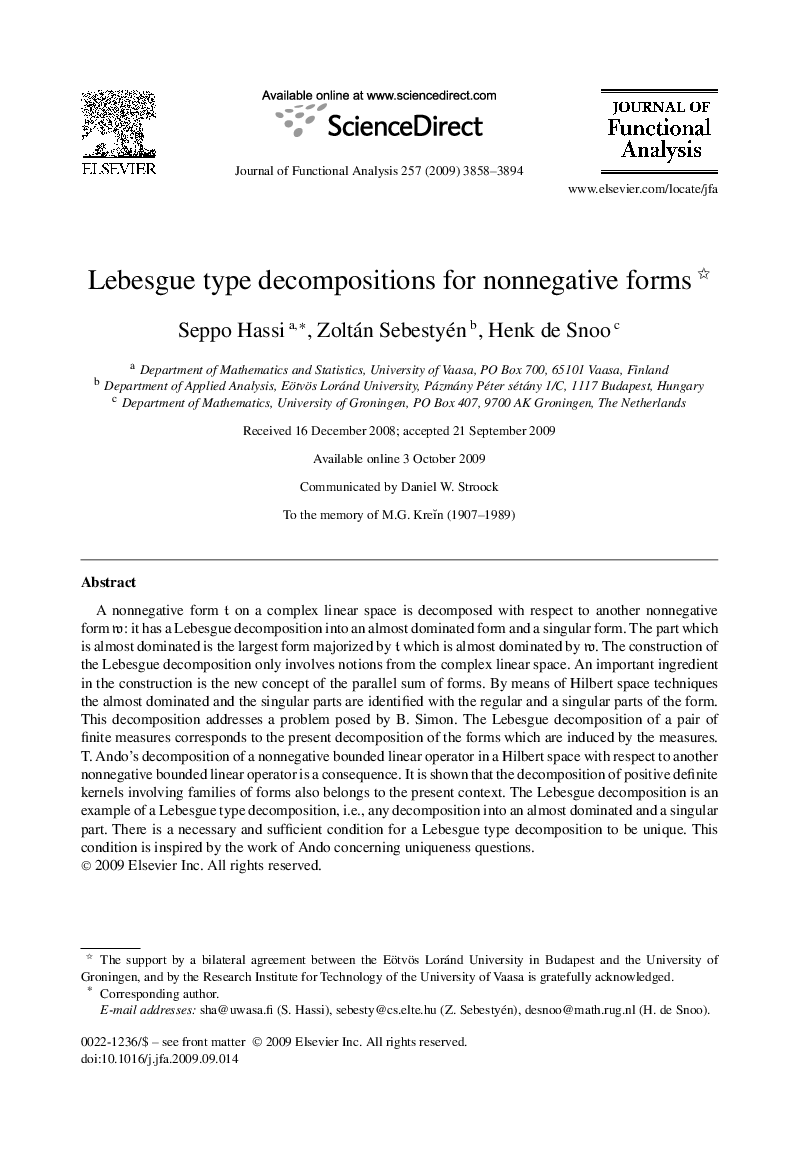| Article ID | Journal | Published Year | Pages | File Type |
|---|---|---|---|---|
| 4592112 | Journal of Functional Analysis | 2009 | 37 Pages |
A nonnegative form t on a complex linear space is decomposed with respect to another nonnegative form w: it has a Lebesgue decomposition into an almost dominated form and a singular form. The part which is almost dominated is the largest form majorized by t which is almost dominated by w. The construction of the Lebesgue decomposition only involves notions from the complex linear space. An important ingredient in the construction is the new concept of the parallel sum of forms. By means of Hilbert space techniques the almost dominated and the singular parts are identified with the regular and a singular parts of the form. This decomposition addresses a problem posed by B. Simon. The Lebesgue decomposition of a pair of finite measures corresponds to the present decomposition of the forms which are induced by the measures. T. Ando's decomposition of a nonnegative bounded linear operator in a Hilbert space with respect to another nonnegative bounded linear operator is a consequence. It is shown that the decomposition of positive definite kernels involving families of forms also belongs to the present context. The Lebesgue decomposition is an example of a Lebesgue type decomposition, i.e., any decomposition into an almost dominated and a singular part. There is a necessary and sufficient condition for a Lebesgue type decomposition to be unique. This condition is inspired by the work of Ando concerning uniqueness questions.
